This time, we’re introducing Mikunisan no Baraen—a manga perfect for learning generational speech differences and honorific language in real-life contexts.
Work Information
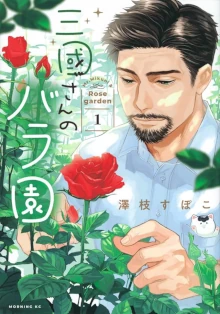
Mikunisan no Baraen (三國さんのバラ園)
Author: Sawaeda Suppoko
Publisher: KODANSHA
Amount of text: moderate
Challenge level: ★★
Latest volume : Vol.2(Nov.2024 / Ongoing)
Story overview
Genichiro Mikuni, 63 years old, has been running the family rose farm for 45 years. Diligently cultivating roses, people refer to him as a “craftsman.” However, despite his imposing and dignified appearance, his tastes and interests are more maidenly than anyone else’s. For a long time, Mikuni’s own self-image has kept his desires in check, but when a high school girl came to interview for a part-time job, that restraint began to falter…!?
The Appeal of This Manga
The protagonist, Mikuni, is a man who loves sweets and cute characters. The biggest appeal of the story lies in the gap between his intimidating appearance and his maiden-like inner self, as well as the psychological drama and comical twists that unfold as he tries to keep this side of himself hidden. However, readers who don’t appreciate this unique setup may not find the story particularly enjoyable.
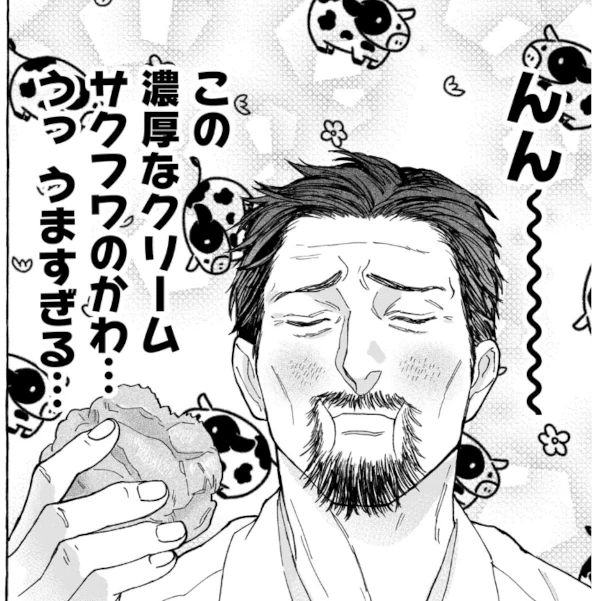
Why this manga is suitable for learning Japanese
An example of conversation with younger generations.
The protagonist, Mikuni, is 63 years old, while Hina, who works part-time at the rose garden, is a high school student, and Ryota is a university student. Mikuni, although he does not use honorific language with the younger generation, always interacts with them in a calm and gentlemanly manner. This provides a good example of how older people can communicate with much younger generations.
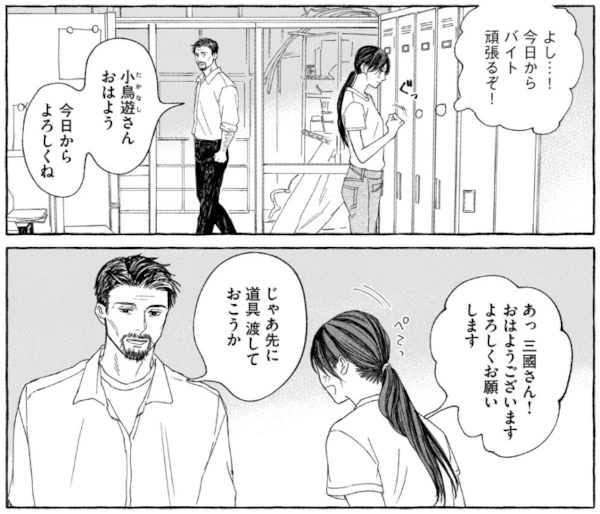
Learn honorific expressions simultaneously.
Hina and Ryota use honorific language when speaking to their employer, Mikuni. Therefore, this work allows learners to study both casual speech and honorific expressions simultaneously. Hina uses standard honorific language, while Ryota uses a slightly more casual form, showcasing two different nuances of honorific speech.
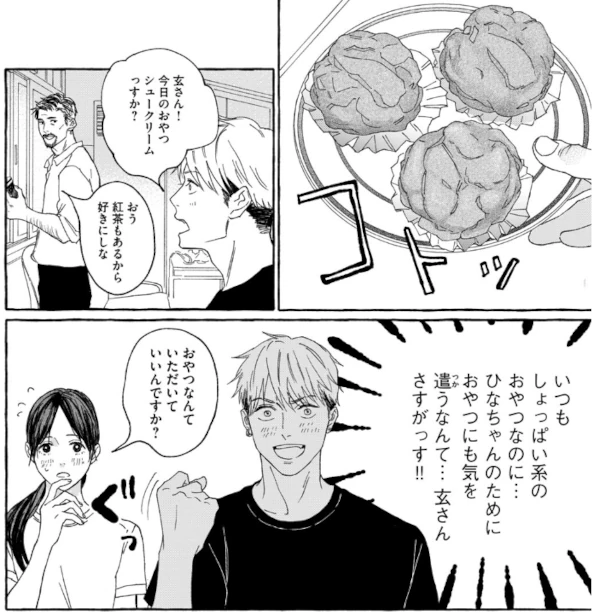
Phrase Spotlight
Is It Really Hot Coffee or Nothing? The Bold Nuance Behind ‘一択’ここはホットコーヒー 一択だ
The phrase 「ここはホットコーヒー 一択だ」 might be a bit tricky for Japanese learners to fully grasp because of the expression 「一択」 (ittaku) and the way it conveys nuance.
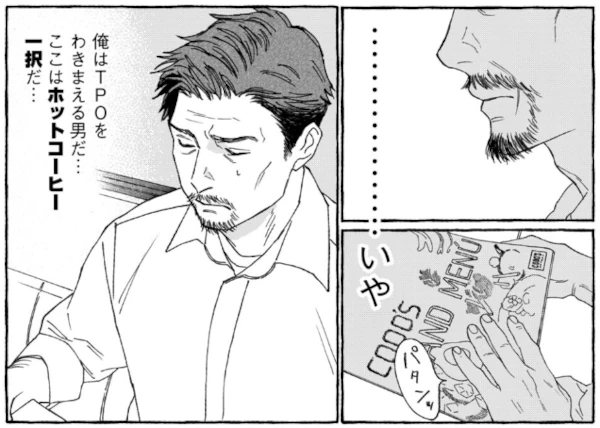
Breaking Down the Phrase
・ここは (koko wa) – “Here” or “In this situation”
・ホットコーヒー (hotto kōhī) – “Hot coffee”
・一択 (ittaku) – “The only choice”
・だ (da) – A declarative sentence-ending particle
Why It Can Be Confusing for Learners
「一択」 is an Advanced Word with a Strong Nuance The word 「一択」 (ittaku) literally means “only one option (to choose from).” Unlike just saying 「ホットコーヒーしかない」 (“There’s only hot coffee”) or 「ホットコーヒーを選ぶ」 (“I’ll choose hot coffee”), the phrase 「ホットコーヒー 一択」 carries a stronger feeling of “There is no other acceptable choice.”
Implicit Meaning: Not Just a Simple Choice The phrase 「ここはホットコーヒー 一択だ」 suggests that, in this specific situation, hot coffee is the only correct or reasonable choice. This is what makes it sound humorous or dramatic.
Why This Phrase is Funny or Interesting
・The phrase sounds overly decisive for something as trivial as choosing a drink.
・It’s commonly used in anime, manga, and casual speech when someone strongly insists on a choice, even when other options exist.
・The exaggerated tone makes it entertaining, as if the speaker is making an absolute decision about something that doesn’t really require such seriousness.
English Equivalent Expressions
To help learners understand the nuance, here are some English equivalents:
・“Hot coffee is the ONLY way to go.”
・“There’s no other choice but hot coffee.”
・“This is a hot coffee situation, no doubt.”
These translations capture the idea that the speaker feels strongly that hot coffee is the only correct decision, even if other choices exist.
Final Thought
Understanding expressions like 「一択」 helps learners appreciate how Japanese uses strong, decisive language in a playful way. It’s not just about logic—it’s about tone and attitude, which are key to sounding natural in Japanese!
A Little Warning
Relatively difficult kanji appear
Relatively difficult kanji appear, such as “三國” for Mikuni’s name and “小鳥遊” for Hina’s surname, Takanashi, which can be challenging for beginners learning Japanese. However, furigana (phonetic guides) are provided the first time these difficult kanji appear in each chapter, so it is not a major issue.
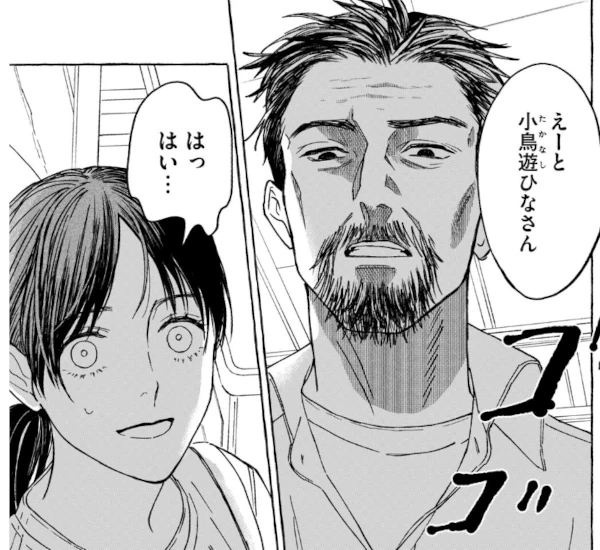
Work Information

Mikunisan no Baraen (三國さんのバラ園)
Author: Sawaeda Suppoko
Publisher: KODANSHA
Amount of text: moderate
Challenge level: ★★
Latest volume : Vol.2(Nov.2024 / Ongoing)
Here’s a safe and convenient way to purchase Japanese manga.
This Blog’s ConceptIn this blog, we are introducing manga that are not only highly captivating but also ideal for Japanese language learners. Studying Japanese through manga is both fun and effective. Manga allows you to understand the subtleties of keigo (honorifics), teineigo (polite speech), and casual conversation in Japanese. We hope you find works that match your interests and use them to enhance your Japanese learning journey.